
Effective July 2012, the government of Japan implemented a feed-in tariff (FIT) system for purchasing power generated under the renewable energy promotion project.
Joshin planned to install a photovoltaic system in Aridagawa Store, a planned new store, intending for all-quantity buyback.
Power utilities purchase electricity generated at 40 yen (plus tax) for a period of 20 years.
For a store that generates power off the grid, at an average electricity purchase price of 14 yen, it would take 26 years to recover the installation cost, but at the purchase price of 40 yen (plus tax), it would take only about nine years.
Based on this simulation, we proposed a business plan under which we would be able to recover the initial costs in 10 years and then make profits in another 10 years.
|
April 2012 |
Plans to install a photovoltaic system in Aridagawa Store, a planned new store, intending for all-quantity buyback. |
|
July 2012 |
The feed-in tariff (FIT) system is implemented. Examines in which existing stores the system can be installed. |
|
October 2012 |
Aridagawa Store starts selling electricity; Plans to introduce a photovoltaic system in six existing stores; Plans to introduce the system in three new stores in the following fiscal year. |
|
November 2012 |
Submits applications for nine stores. |
|
April 2013 |
Starts engineering work to install photovoltaic systems in the existing stores. |
|
May 2013 |
Higashi Ikoma Store, Handa Store, Shin Anjo Store and Minami Osaka Service Center start generating power. |
|
June 2013 |
Higashiosaka Store (installation on the rooftop) and Himeji Higashi Store start generating power. |
|
July 2013 |
Yao Service Center and Ikaruga Store start generating power. |
|
November 2013 |
Sotokan Kashiwara Store starts generating power. |
|
June 2014 |
Fukusaki Store, Komaki Store, Matsusaka Store and Ichikawa Ono Store start generating power. |
|
April 2015 |
Mizuho Store (store building) starts generating power. |
|
May 2015 |
Mizuho Store (tenant building) and Fushimi Store start generating power. |
|
September 2016 |
Taishi Store starts generating power. |
|
November 2016 |
Ichinomiya Bisai Store starts generating power. |
|
June 2017 |
Sotokan Yao Store starts generating power. |
|
March 2018 |
Sasayama Store starts generating power. |
|
September 2018 |
Toyonaka Interchange Store and Kawachinagano Store start generating power. |
|
October 2018 |
Hitotsugi Store starts generating power. |
|
December 2018 |
Higashiosaka Nagata Store starts generating power. |
|
November 2019 |
Ibaraki Store and Nishinomiya Store start generating power. |
* Himeji Higashi Store and Sotokan Kashiwara Store installed a photovoltaic system not only for selling electricity but also for counting it as a green space area in building the store.
2,983.27t-CO_{2}/year
※Total CO_{2} emission reduction of 27 business sites
• Calculated with METI’s CO_{2} emission coefficient of 0.000429t-CO_{2}/kWh.
We have photovoltaic systems for the FIT program in place at 27 business sites at present. The total electricity sales per year amount to approximately 200 million yen.
|
Installed office |
|
|
1 |
Aridagawa Store |
|
2 |
Himeji Higashi Store |
|
3 |
Yao Service Center |
|
4 |
Ibaraki Store |
|
5 |
Nishinomiya Store |
|
6 |
Higashi Ikoma Store |
|
7 |
Handa Store |
|
8 |
Shin Anjo Store |
|
9 |
Minami Osaka Service Center |
|
10 |
Higashiosaka Store |
|
11 |
Ikaruga Store |
|
12 |
Sotokan Kashiwara Store |
|
13 |
Fukusaki Store |
|
14 |
Komaki Store |
|
15 |
Ichikawa Ono Store |
|
16 |
Matsusaka Store |
|
17 |
Mizuho Store (store building) |
|
18 |
Mizuho Store (tenant building) |
|
19 |
Fushimi Store |
|
20 |
Taishi Store |
|
21 |
Ichinomiya Bisai Store |
|
22 |
Sotokan Yao Store |
|
23 |
Sasayama Store |
|
24 |
Toyonaka Inter Store |
|
25 |
Kawachinagano Store |
|
26 |
Higashiosaka Nagata Store |
|
27 |
Hitotsugi Store |
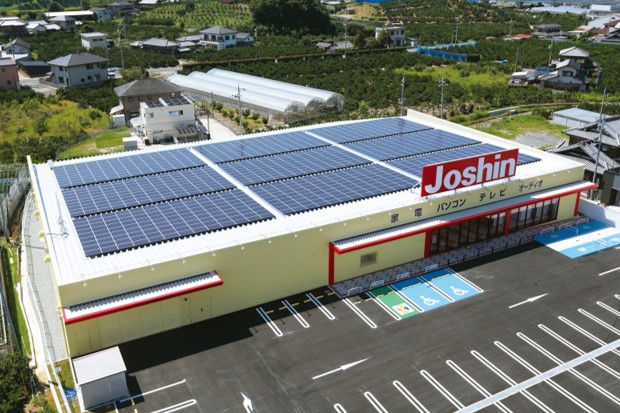
Aridagawa Store
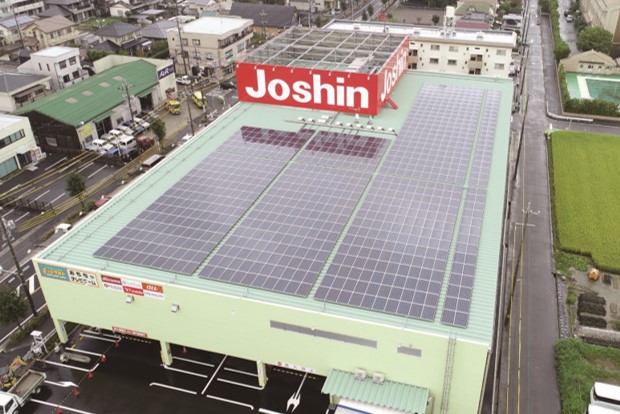
Hitotsugi Store
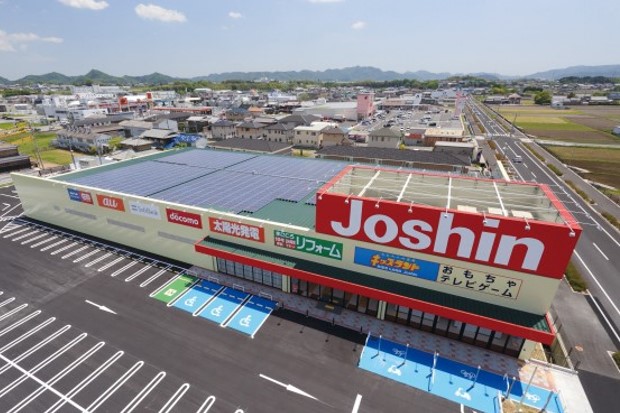
Fukusaki Store
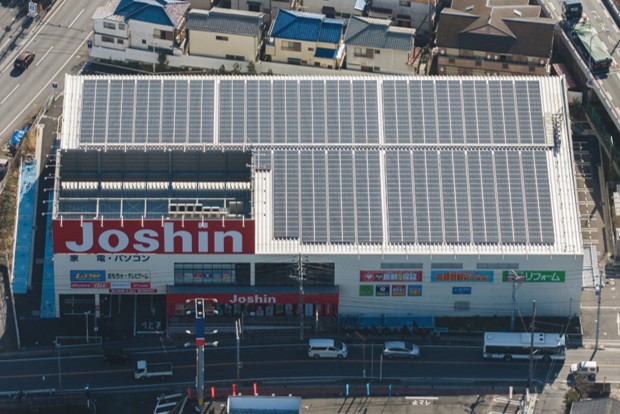
Ichikawa Ono Store

Ikaruga Store
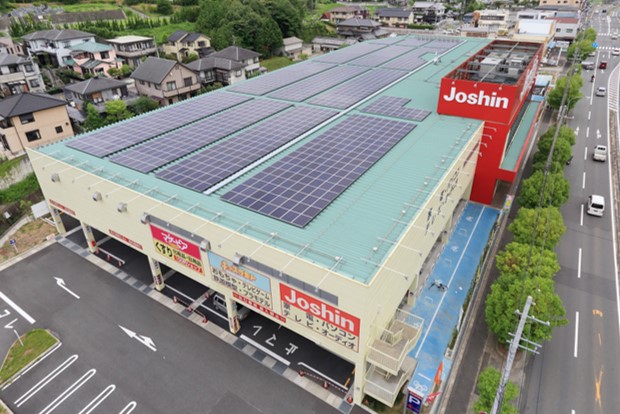
Higashi Ikoma Store
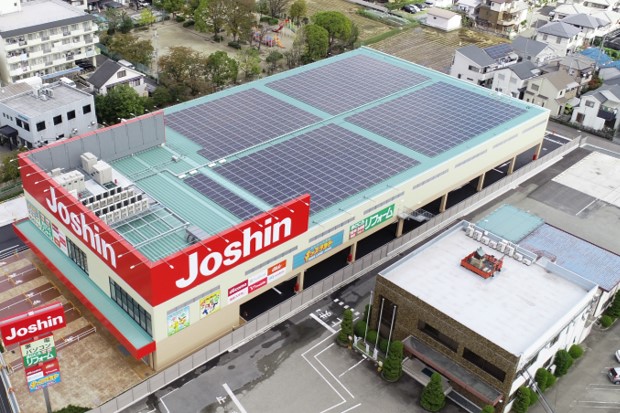
Ibaraki Store
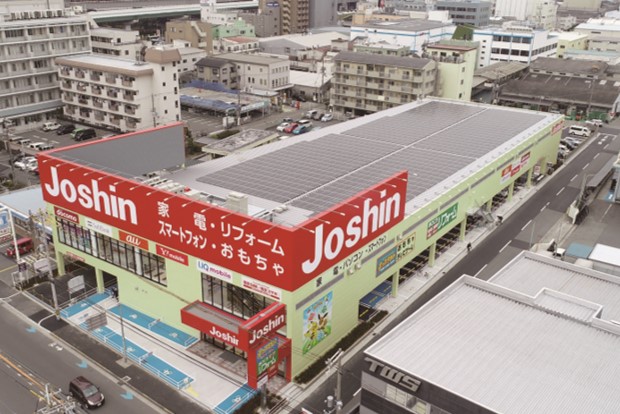
Higashiosaka Nagata Store
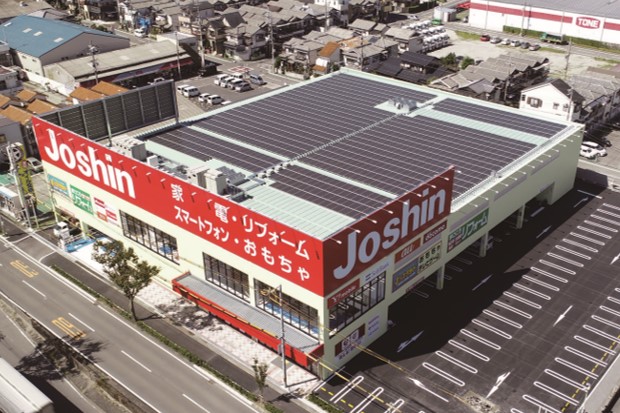
Kawachinagano Store
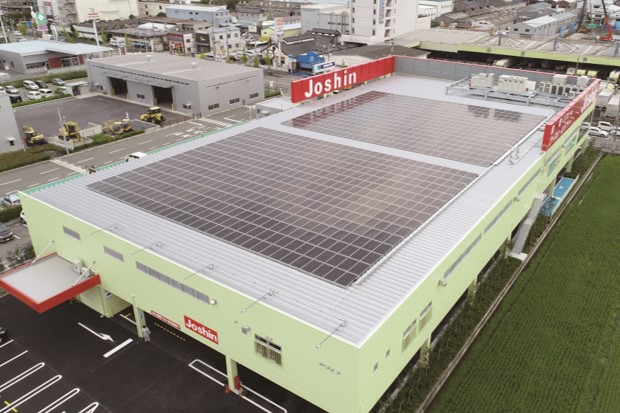
Toyonaka Interchange Store

.jpg)
